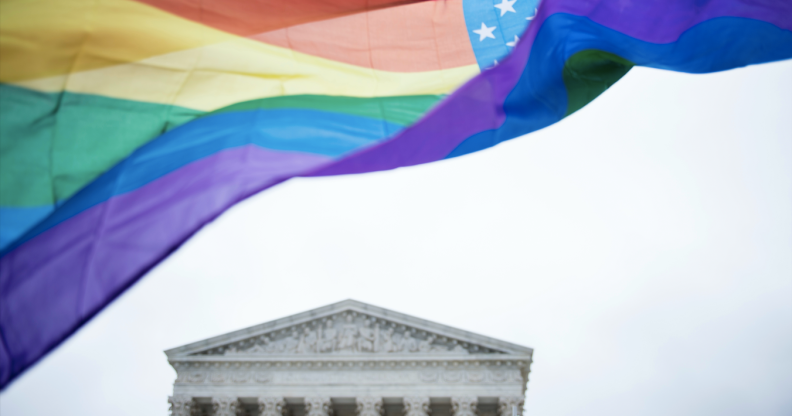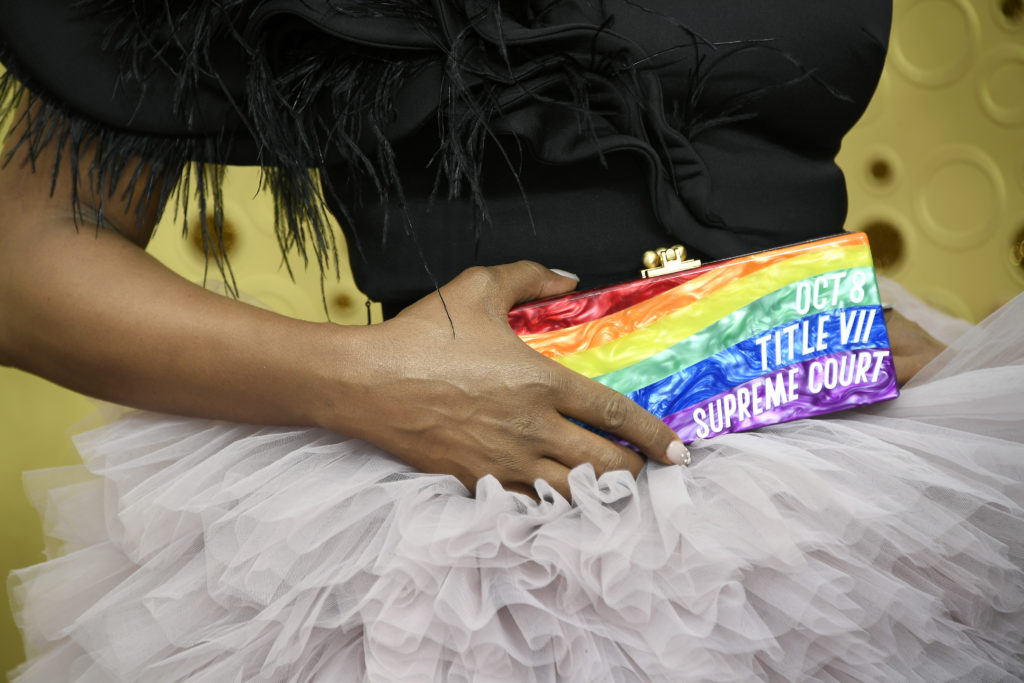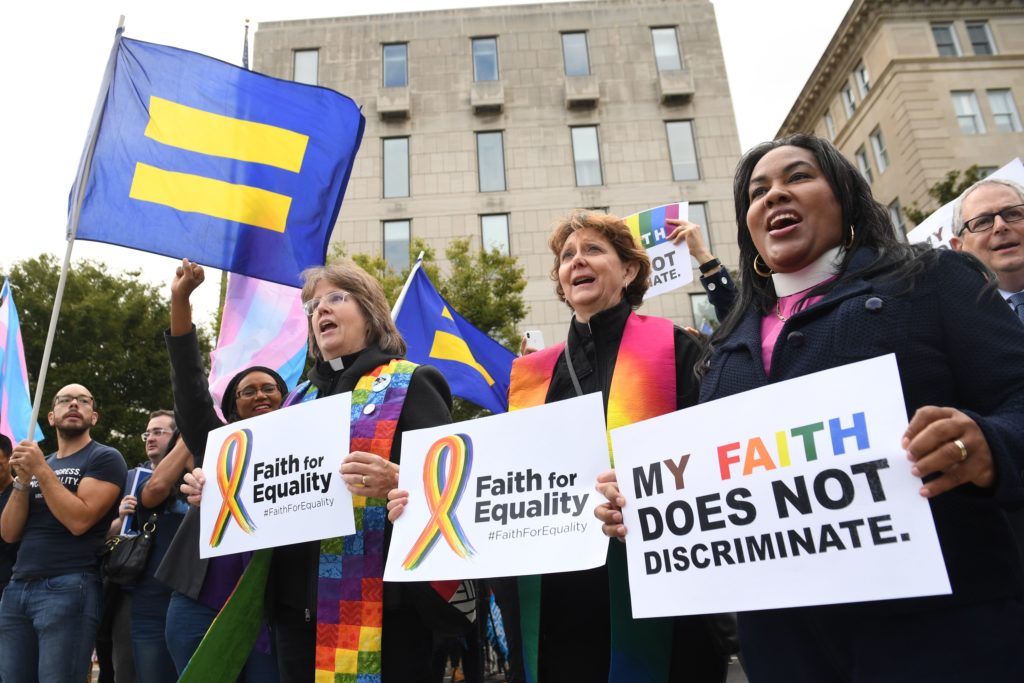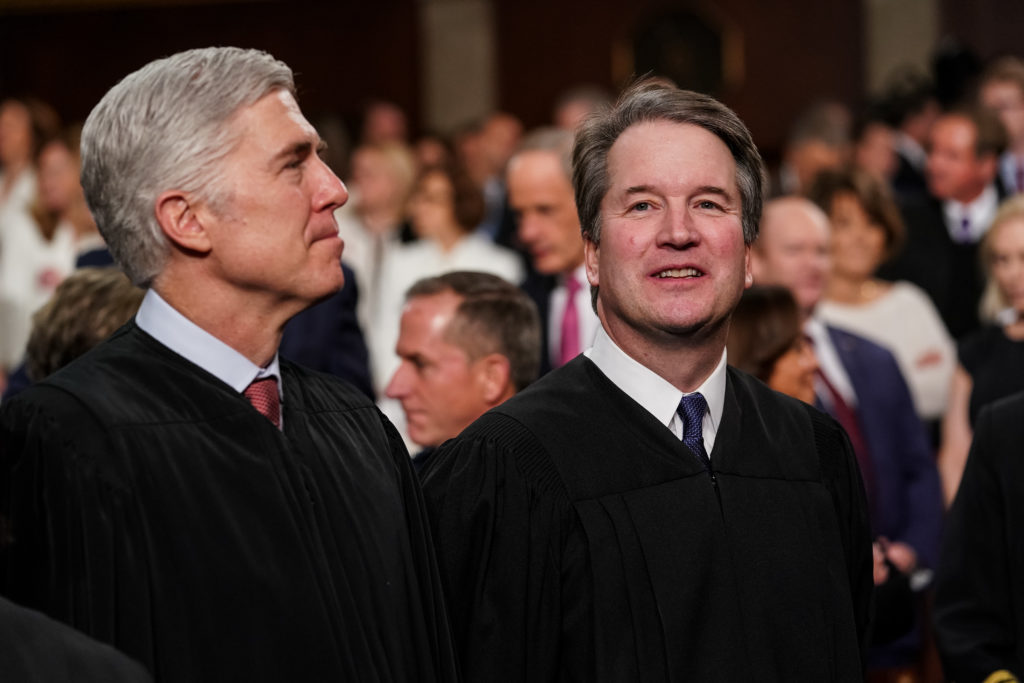The Supreme Court is set to decide if it’s OK to fire someone for being gay. Here’s everything we know so far

Three landmark cases on LGBT+ discrimination will be heard at the US Supreme Court on October 8 (Brendan Smialowski/AFP/Getty)
The US Supreme Court is weighing in on three hugely important cases that will determine whether it’s legal to discriminate against LGBT+ people in the US.
Two of them, Zarda v. Altitude Express and Bostock v. Clayton County, will be argued together. Both relate to gay men who were fired from their jobs, allegedly because of their sexuality.
The cases centre on an existing piece of federal legislation, Title VII of the Civil Rights Act of 1964, a law that prohibits employers from discriminating against employees on the basis of sex, race, colour, national origin and religion.
After two hours of arguments, the Supreme Court will make a landmark decision on whether Title VII should encompass sexual orientation and gender identity, or if these protections should be stripped away.
Representing the plaintiffs are solicitors Buckley Beal, Greg Antollino and Pam Karlan. Opposing them will be solicitor general Noel Francisco, who will argue that the law does not bar discrimination based on transgender status or sexual orientation.
In court briefs, Francisco said that the case isn’t about whether as a “matter of policy” Title VII should forbid discriminating against LGBT+ people – it’s about the fact that the current law simply doesn’t provide those protections.

Transgender model and activist Laverne Cox raised awareness of the critical case with a special purse she designed herself for the 2019 Emmy Awards (Frazer Harrison/Getty)
What will it mean for LGBT+ people?
If the court rules that LGBT+ people are not protected by Title VII, LGBT+ opponents are likely to use the same legal reasoning to attempt to overturn critical protections in housing, healthcare, credit, education, and more.
In short, LGBT+ Americans could soon find themselves living in a nation where it is legal for them to be denied a job, fired, discriminated against at school, denied a loan, rejected by a doctor and evicted from an apartment, simply because of their sexuality.
“The stakes for hard-working LGBTQ Americans could not be higher,” said GLAAD president and CEO Sarah Kate Ellis.
“These cases will not only determine whether companies can legally fire someone just for being LGBTQ, but whether our community will face legal discrimination throughout all aspects of daily life.
“American values of fairness and equality are at stake. All fair-minded Americans should be watching these cases and loudly letting our US Supreme Court Justices know that the public is against the right to discriminate.”

LGBT+ activists rally outside the US Supreme Court in Washington, DC, October 8, 2019 (Saul Loeb/AFP/Getty)
How are the justices likely to sway on the matter?
In 2015 the Supreme Court previously ruled in favour of the LGBT+ community to legalise same-sex marriage, but LGBT+ advocates fear that the balance has now shifted against them after the retirement of justice Anthony Kennedy.
Kennedy was a key figure in several LGBT+ rights cases who was known for his ‘liberal streak’. His absence from this crucial trial has prompted some unease in the LGBT+ community.
Particularly worrying is Trump’s contribution to the Supreme Court. In keeping with his 2016 campaign promise, Trump has stacked the judiciary with two conservative judges, Brett Kavanaugh and Neil Gorsuch, appealing to his right-wing voting base.
The nominees were condemned by GLAAD, which said they were “an ideologically-driven pick designed to create an activist Supreme Court that will undermine rights and protections for women, LGBTQ people, immigrants, and all vulnerable people.”

Supreme Court Justices Neil Gorsuch and Brett Kavanaugh attend the State of the Union address on February 5, 2019 (Doug Mills-Pool/Getty)
Kavanaugh’s views on LGBT+ issues remained unclear through his sexual misconduct trial, and he has no judicial record on any LGBT+ rights cases. But several of Gorsuch’s past decisions on the US Court of Appeals reveal concerns.
In 2009 Gorsuch heard the case of Kastl v. Maricopa County Community College District, involving a transgender woman whose employer barred her from using a female bathroom until she had gender confirmation surgery.
Crucially, Gorsuch recognised that a transgender person can state a claim for sex discrimination under Title VII based on a theory of gender stereotyping – however, he ultimately ruled against the plaintiff.
Although the case didn’t have a positive outcome, the precedent it set is somewhat encouraging.
The one to watch will be chief justice John Roberts, who is viewed as the possible ‘moderate voice’ of the Supreme Court. In the past, he has shown a willingness to follow public opinion and legal precedent.

